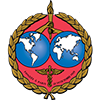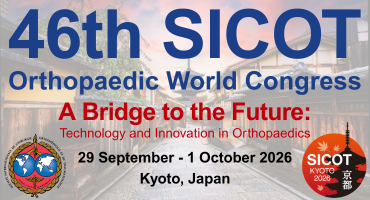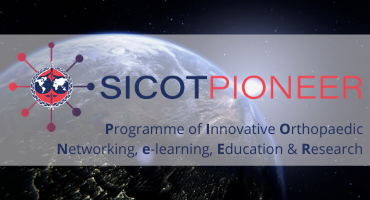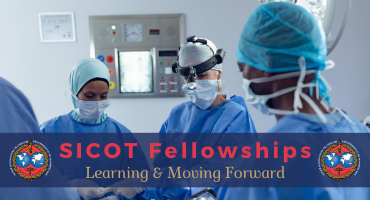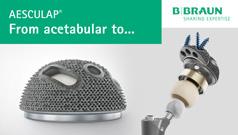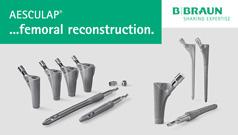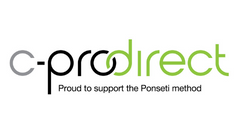
Médecins Sans Frontières (MSF) is an international, independent, medical humanitarian organisation that delivers emergency aid to people affected by armed conflict, epidemics, healthcare exclusion and natural or man-made disasters.
The work of MSF is carried out by thousands of health professionals, logistical and administrative staff. The vast majority of MSF staff come from the countries where the organization provides medical assistance. Together, they manage projects in more than 60 countries worldwide.
MSF has surgical activities in general health care projects, in emergency interventions (ranging from surgery in emergency field hospitals to involvement in third-level referral structures), and in specific projects, e.g. obstetric surgery. You will find more information on the website: www.msf.org.
In the aftermath of the 2004 Indian Ocean tsunami, 2005 Pakistan Earthquake, 2010 Haitian earthquake, SICOT and MSF started a collaboration, aiming at the improvement of surgical / orthopaedic care in emergency situations. Thus, taking advantage of SICOT's network of highly qualified orthopaedic surgeons and traumatologists, as well as MSF's experience and knowledge of emergency medical care.
MSF Charter
Doctors Without Borders/Médecins sans Frontières (MSF) is a private international association. The association is made up mainly of doctors and health sector workers and is also open to all other professions which might help in achieving its aims. All of its members agree to honour the following principles:
Médecins Sans Frontières provides assistance to populations in distress, to victims of natural or man-made disasters and to victims of armed conflict. They do so irrespective of race, religion, creed or political convictions.
Médecins Sans Frontières observes neutrality and impartiality in the name of universal medical ethics and the right to humanitarian assistance and claims full and unhindered freedom in the exercise of its functions.
Members undertake to respect their professional code of ethics and to maintain complete independence from all political, economic, or religious powers.
As volunteers, members understand the risks and dangers of the missions they carry out and make no claim for themselves or their assigns for any form of compensation other than that which the association might be able to afford them.
Main basic interventions carried out in MSF projects involving orthopaedic surgery are the following:
Life Saving Surgery: generally performed for an acute surgical state in which the patient’s life / vital organ / limb is at stake and which needs to be done as soon as possible, usually within a few hours. In this situation, the benefit of performing the surgical intervention outweighs the risk and justifies proceeding with the surgery even if all other conditions are not ideal. E.g. wound debridement, traction (skin and skeletal), close reduction with PoP, amputation. In these situations, application of external fixation in open fractures may be applicable as part of this procedure.
Essential Surgery: addresses a condition amenable to a proven surgical treatment which may not affect health / life immediately, but considerably impairs the quality of life and / or may present a serious health threat in the future. E.g. tendon repair, skin grafting, flaps for wound coverage. When hygiene control conditions are met, application of internal fixation in close fractures may be performed.
More specific information is available in our members area or to contact MSF directly they can be reached at [email protected].
SICOT contribution to natural disasters assistance
Amputation
Amputations in natural disasters and mass casualties: staged approach
Amputations of limbs during the 2005 earthquake in Pakistan: a firsthand experience of the author
Extremity amputation: how to face challenging problems in a precarious environment
Post-amputation rehabilitation in an emergency crisis: from preoperative to the community
Triage
SICOT contribution to natural disaster assistance: the triage
Triage in surgery: from theory to practice, the Medecins Sans Frontière experience
Triage of mass casualties in war conditions: Realities and lessons learned
Orthopedic triage during natural disasters and mass casualties: Do scoring systems matter?
Study of the severity of musculoskeletal injuries and triage during Pakistan earthquake 2005
Review of Van earthquakes form an orthopaedic perspective: a multicentre retrospective study
External fixator
SICOT contribution to natural disaster assistance: the external fixator
External fixators and sudden-onset disasters: Médecins Sans Frontières experience
Temporary and definitive external fixation of war injuries: use of a French dedicated fixator
Pre-requisite
SICOT contribution to natural disaster assistance: the pre-requisite
Quality orthopaedic care in sudden-onset disasters: suggestions from Médecins Sans Frontières-France
Orthopaedic surgery in natural disaster and conflict settings: how can quality care be ensured?
War Injury
